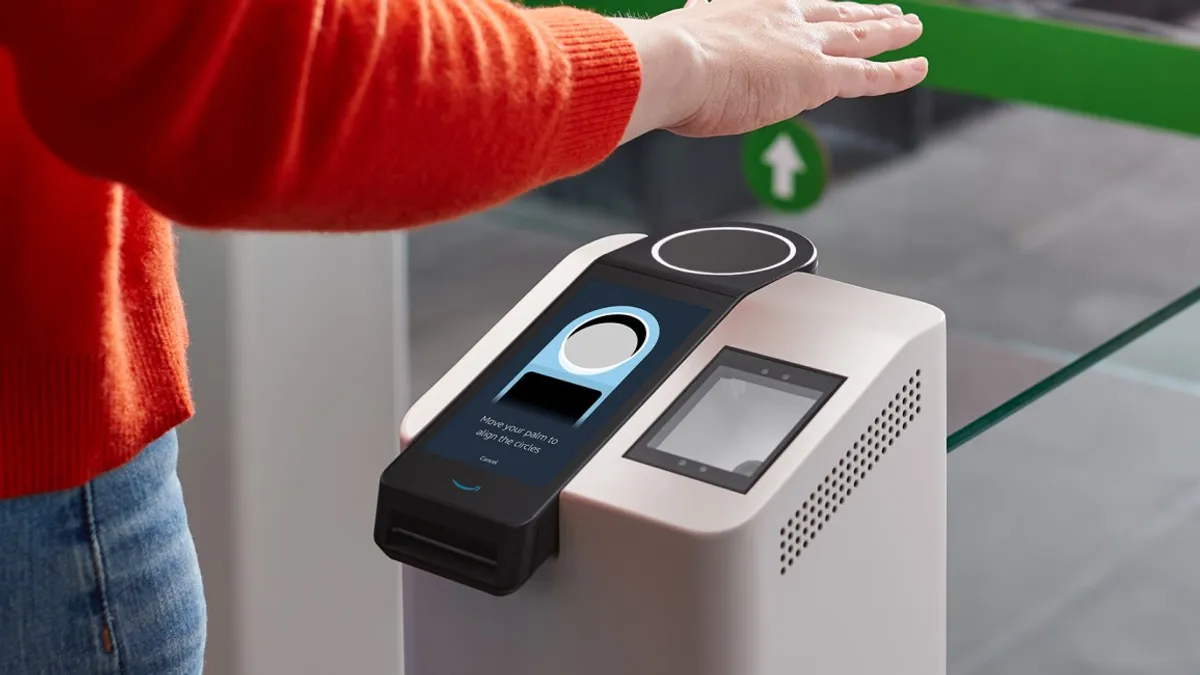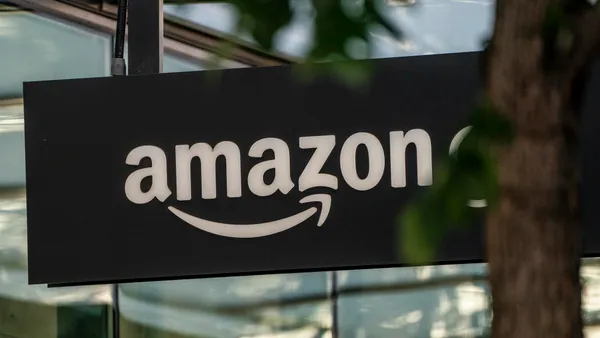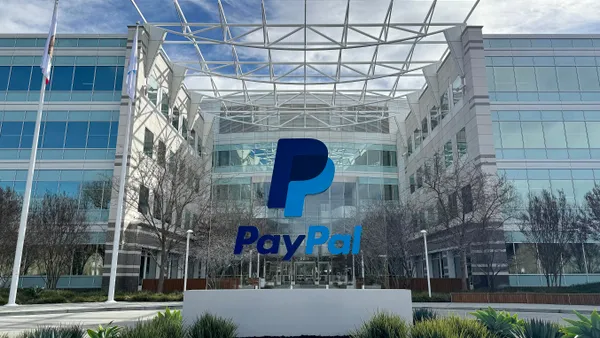Dive Brief:
- Amazon’s Just Walk Out and palm-scanning Amazon One technology is coming to Community Groceries when the independent grocer reopens on Dec. 16 in Kansas City, Missouri, according to an emailed announcement Monday.
- The partnership marks the first time a grocer that isn’t operated by Amazon will use the company’s proprietary technology, per the announcement.
- The announcement furthers Amazon’s foray into licensing its proprietary technology as grocers see major retailers also become service vendors.
Dive Insight:
Amazon has been building out its grocery presence online and with physical stores. But the e-tailer giant is also turning the dial-up on serving as vendors to grocers.
Using Amazon’s two solutions will create a more efficient shopping experience, Alyssa Groenig, director of sales and marketing for Community Groceries, said in the announcement.
Shoppers will be able to enter the store by inserting their credit card at the entry gates or hovering one of their palms over an Amazon One device. The Just Walk Out technology tracks which items people select while shopping and then charges them for those items.
The announcement noted that these technologies will help provide faster, more convenient and more memorable service than traditional grocery shopping experiences.
Community Groceries is a health-focused grocer that aims to serve underserved communities, the email noted. The grocer offers a “Lifestyle Program” with three memberships ($24.99 per week, $37.99 per week or $49.99 per week) that cover the cost of limited number of items, such as snacks, fruit, beverages and salads.
“Community Groceries is renowned for encouraging healthy lifestyles and focusing first and foremost on their local community, so we’re honored to have them as our first customer in the grocery vertical to launch a Just Walk Out technology and Amazon One-enabled store,” Dilip Kumar, vice president of Amazon’s AWS Applications, said in the announcement.
Once reopened, Community Groceries will be located at 18th and Holmes streets — about a 12-minute drive from the Whole Foods in the city’s South Plaza neighborhood.
The announcement did not include the size of the store. Many of the frictionless checkout makers have primarily rolled out their technology in small spaces, including at airports, convenience stores and college campuses.
The partnership also marks the debut of Amazon’s Just Walk Out and Amazon One solutions in Kansas City.
In the U.S., Amazon has been the leader in checkout-free solutions in the grocery industry, adding its Just Walk Out, Amazon One and Dash Cart to Whole Foods and Amazon Fresh stores. Amazon also has brought Just Walk Out and Amazon One to its Amazon Go convenience format.
Serving as a vendor, Amazon has licensed its palm-reading tool and Just Walk Out to a number of third-party entertainment and travel environments, including the Climate Pledge Arena in Seattle, Lumen Field in Seattle and Hudson Nonstop at select airports.
Amazon has growing competition in the frictionless checkout space: Standard, Trigo, AiFi, Zippin and Mashgin are some of the tech companies looking to gain ground in the U.S.
While the Community Groceries tie-up marks Amazon’s first foray into offering Amazon One and Just Walk Out to a grocer it doesn’t own, Amazon has provided other services to grocers.
In September, Amazon teamed with Cardenas Markets to power the Hispanic grocer’s two-hour delivery, followed by The Save Mart Companies a month later. Amazon also provides delivery service for California grocery chain Bristol Farms, pharmacy chain Bartell Drugs and pet products seller All The Best — with the latter two in the Seattle area.
Walmart has followed a similar trajectory of boosting its vendor services. The retailer has made its white-label delivery service available to other retailers; provided grocers access to checkout tech, fulfillment solutions and other tools from its technology division; and rolled out its own retail media arm, Walmart Connect.
For smaller grocers, leveraging other companies’ technology solutions — even when they are competitors — can provide access to resources they otherwise may not want to build internally or partner with another vendor on.













